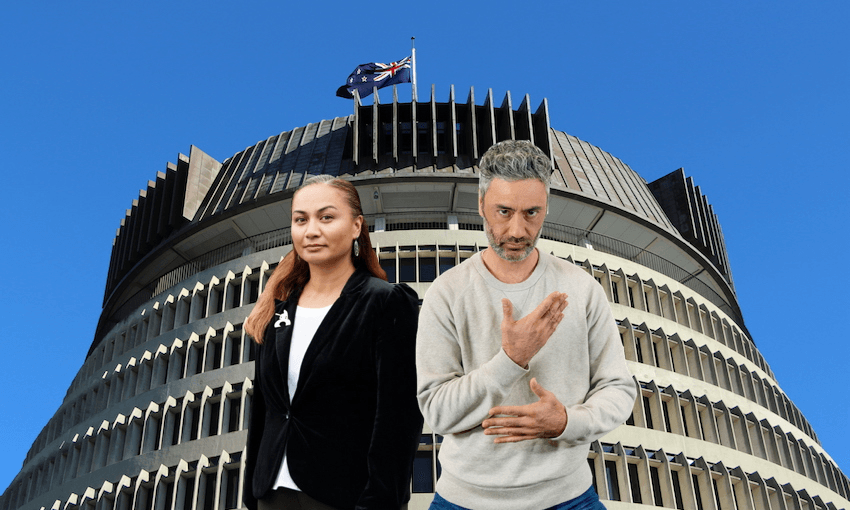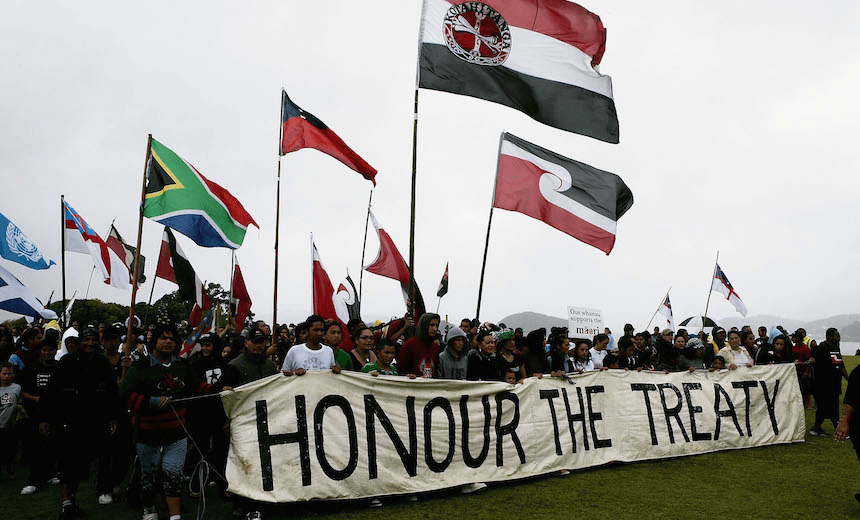Former Green MP Catherine Delahunty makes the case for a new ministry.
The new government needs to face facts: Pākehā need help to assimilate into Aotearoa. We have had more than 160 years but some of us are still struggling to cope. Reluctant as I am to throw more money at Pākehā, the failures are obvious. Pākehā have in some instances failed to fulfil our potential and become useful contributors to a Te Tiriti based nation. A number of Pākehā show a lack of knowledge of how to behave in a culturally appropriate manner and often retreat to unhelpful myths. There is a stubborn monolingualism and a persistent problem with the Pākehā belief that we are “normal” and that our culture does not even exist.
The new Ministry could have the power to protect the next generation of Pākehā children from dysfunctional, at-risk nuclear families. It is shocking but sometimes children grow up with no concept of the importance of the collective. These children should be placed in healthy Pākehā families who are ideally related to them, but if none can be found we might have to place them with Māori or Pasifika nuclear-free whānau.
The Ministry will also need to focus on senior citizens as some have adopted damaging behaviours. There are small groups doing their best to stir up discontent in the Pākehā population under the guise of being “one people”, according to a contested historical quote made by an Englishman at Waitangi in 1840 who was tolerated but not celebrated by the national leaders present. These groups may need a level of surveillance and I would suggest Thompson and Clark should be monitoring their activities. One group in particular seems to have unlimited funds for travelling the country making uninformed speeches. Both surveillance and assistance will be needed. Their aptly named leader will need psychological help to adjust to loss of status and retraining to use his undoubted energies for the common good. Some people say spending funds on such groups is a waste of time but I believe everyone can change (although there is one character known as “Sir Bob” who may prove the exception).
Another role for the Ministry would be celebrating the efforts of Pākehā who are adapting, such as self-described ‘recovering racist’ Andrew Judd and the Treaty educators network. The benefits of adaptation are huge not only for Pākehā but for tangata whenua and all other cultures who are all tired of trying to explain to Pākehā that some behaviours and cultural norms can be offensive to everyone else.
The public awareness campaigns needed could focus on those children who enter the education system only speaking English, who have never been to a marae or taken their shoes off when entering a house, even when the whole front porch is covered with shoes! This is serious neglect. There could also be work done in the education system so that Pākehā students stop expecting to always be leaders and that subjects should always be taught based on their learning styles and cultural icons. Books by William Shakespeare and friends are great but is it safe for Pākehā students to think these are the only creative role models? They will grow up limited and unable to adapt to modern Aotearoa unless we act soon.
There is so much hope for younger Pākehā, many of whom are open to respecting other cultures and embracing Te Tiriti o Waitangi, but there are still too many failing to contribute. The debate remains, can non-Pākehā social workers actually help these communities improve their attitudes and abandon the intergenerational inherited racism which leads to such widespread harm? The Ministry need a research team to focus on such questions and the universities have a role to play. Years of research by experts on Pākehā dysfunction will probably be needed. Of course it should be led by the subjects themselves but it will take a while for them to develop the unbiased academic frameworks needed to understand the problem.
The media have an important role to play and money will need to be directed away from broadcasters who promote aggressive Pākehā because of the shock value and continue to privilege Pākehā perspectives in stories. It’s really not helping Pākehā with our addiction to dominance.
Despite the sad history of violence towards Māori and the ignorance of how we benefit from the collective misappropriation of other people’s land and resources, there is hope. The Ministry of Pākehā Affairs needs to make sure all Pākehā are supported to understand that Te Tiriti o Waitangi gives us a place to stand in Aotearoa but we have got to stop expecting hand outs and special privileges just because we are Pākehā.
The new Ministry will be based on respect and compassion towards a struggling culture addicted to dominance. The addicts can be helped but they do have to want to change and that is why it will take time and sometimes a firm hand. It has been more than 160 years of ignoring the problem and hoping that Pākehā will step up to our responsibilities. The honesty and courage of the victims of racism must be acknowledged. Co-ministers Waititi and Davidson have said their first task at the new Ministry will be to build a culture of goodwill and good humour. Ideally the Ministry will one day be led by a Pākehā but until those dominance issues are sorted it’s just too risky.





